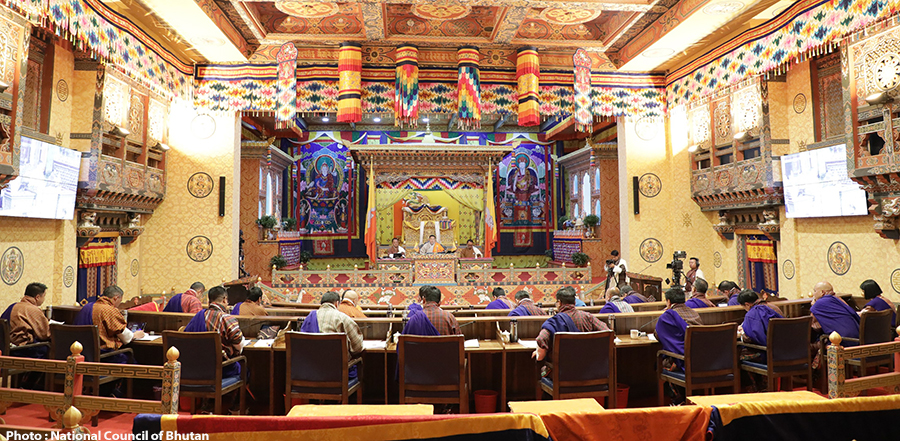 At the National Council today, the Good Governance Committee called for major changes to the Rural Life Insurance Scheme. The committee recommended increasing the current sum assured and premium, which now stands at Nu 30,000. Most of the members urged the committee to set a minimum increase of Nu 150,000 rather than leaving it open. This marks the first proposed revision to the scheme in nearly eight years.
At the National Council today, the Good Governance Committee called for major changes to the Rural Life Insurance Scheme. The committee recommended increasing the current sum assured and premium, which now stands at Nu 30,000. Most of the members urged the committee to set a minimum increase of Nu 150,000 rather than leaving it open. This marks the first proposed revision to the scheme in nearly eight years.
During the session, several members of the house called for an increase in the insurance claim amount, emphasising the increase in the prices of goods and commodities in the market, which the current amount barely covers.
The scheme currently offers a sum assured of Nu 30,000 with an annual premium of Nu 195, of which Nu 108 is paid by the government.
Members highlighted that the current sum is no longer adequate, especially for rural families struggling to meet funeral expenses.
“The true burden of the limited insurance amount is felt when a person dies. While the wealthy may spend up to Nu 200,000 on funeral rites, economically disadvantaged families have to stretch the current 30,000 ngultrum to cover all expenses for the entire 21-day rites,” said Phub Dorji, MP, Wangdue Phodrang, National Council.
“While talking to the people, they say the current amount is not sufficient for the funeral rites. Therefore, if we could increase the amount to Nu 150,000, it would greatly benefit the people,” said Birendra Chimoria, MP, Dagana, National Council.
“Whether the insurance claim amount should be set at Nu 100,000 or 150,000 will be decided when we discuss our recommendation at the end of the deliberation. We have stated that our position will align with the level of support expressed by the House during yesterday’s discussion,” said Sonam Tobgyel, Chairperson, Good Governance Committee, National Council.
Meanwhile, the proposal to extend life insurance coverage to children aged eight and below received a mixed response in the House.
“A child is required to be registered in the census within a year of birth. So, it would be practical to include the child in the insurance scheme at the time of census registration,” said Ugyen Tshering, MP, Paro, National Council.
“When we talk about including children below the age of eight in the insurance scheme, we must consider the government’s budget and whether it can afford to provide the necessary subsidies. Currently, the government covers 55 per cent of the insurance cost, while individuals pay the remaining 45 per cent as premiums,” said Dago Tsheringla, MP, Haa, National Council.
According to the committee’s report, if the government increases the insurance claim amount to Nu 150,000, individuals will need to pay an annual premium of Nu 1,050.
Furthermore, the committee has recommended making the Rural Life Insurance Scheme more inclusive by introducing a differentiated subsidy modality. Urban population who have the capacity to pay insurance premiums would receive less support while those who are economically vulnerable would get increased financial assistance.
The committee has also recommended RICBL to facilitate both online and offline payment options. This is because rural people, in particular, face difficulty in using the MyRICB app due to digital illiteracy and the problem of internet connectivity across the country.
The house will deliberate on the remaining recommendations next week.
Karma Wangdi & Tashi Dekar
Edited by Sonam Pem








